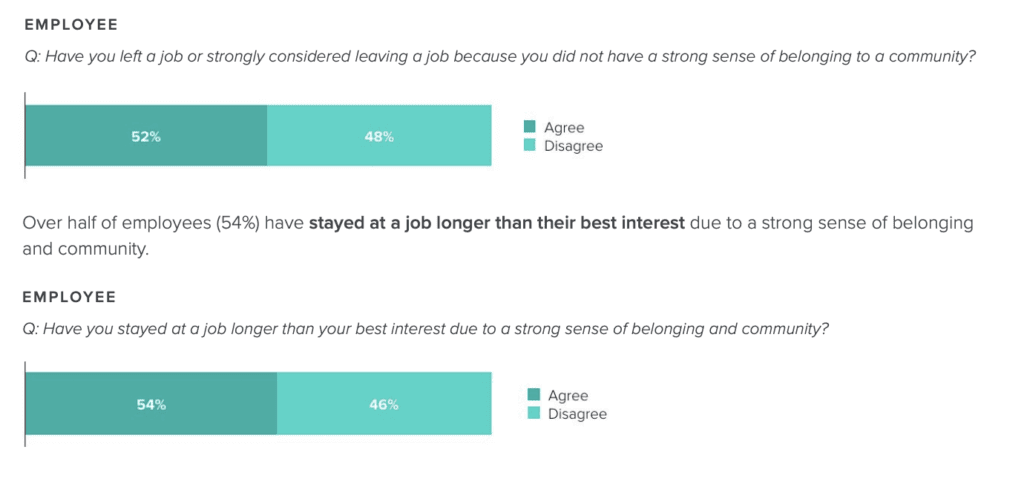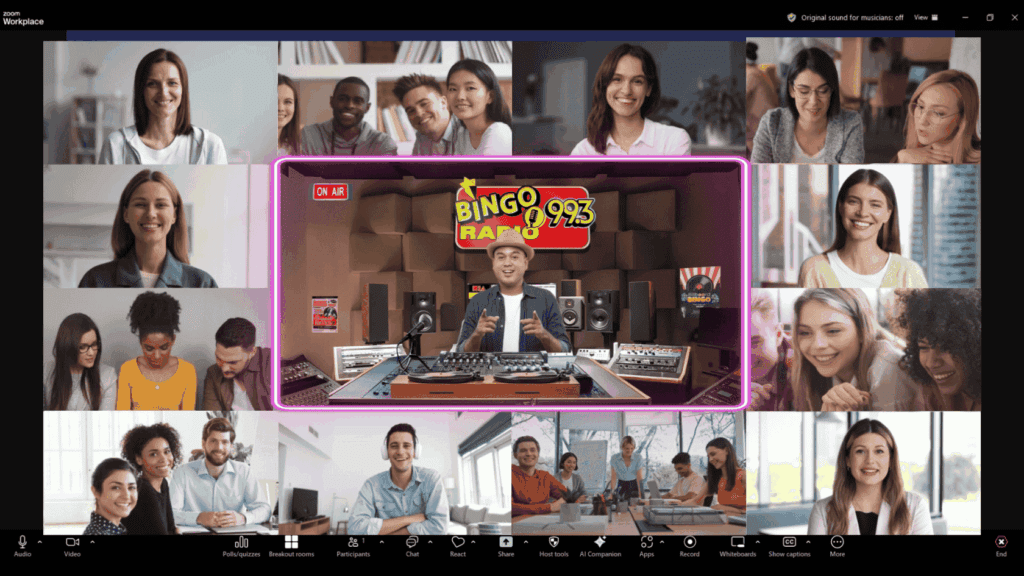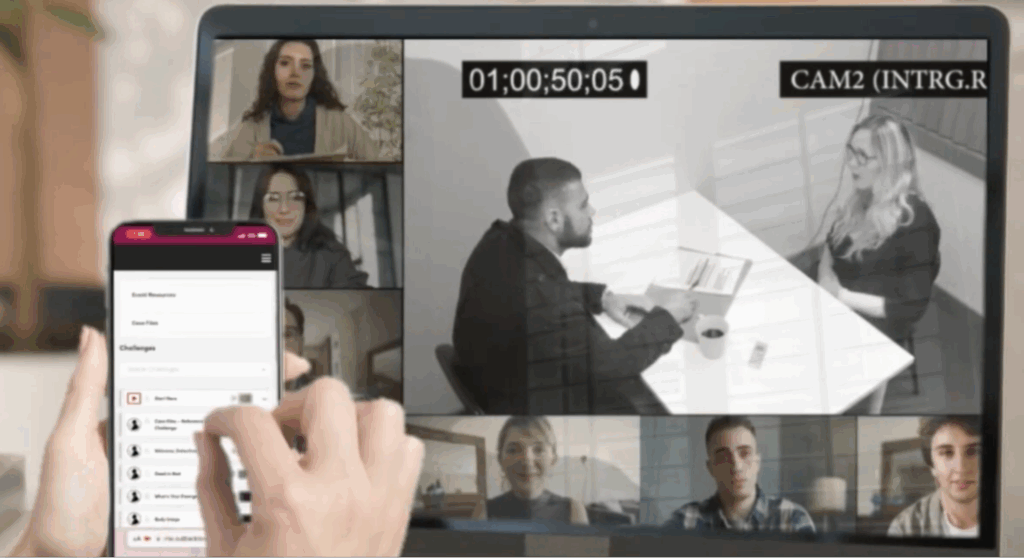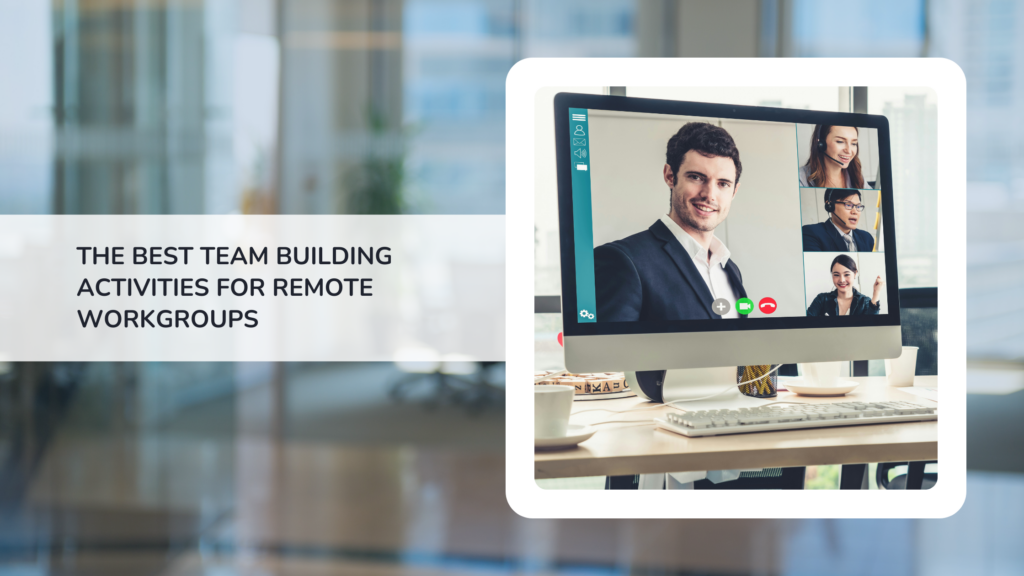A fifth of Americans now work from home at least some of the time. And for the most part, the work itself isn’t the issue.
Technology and streamlined processes keep projects moving smoothly across locations.
What’s harder to replicate is the human connection.
That’s why hybrid team-building activities matter.
They’re deliberate tools to close the gap between office chatter and remote silence, so everyone’s part of the same story.
Let’s take a closer look at the best strategies to design hybrid team activities that connect and engage your teams.
Table of Contents
- Why hybrid team-building activities matter (key stats)
- 7 strategies to design hybrid team activities
- 1. Start with equal access to technology
- 2. Choose activities that work both online and in-person
- 3. Focus on collaboration, not competition alone
- 4. Design inclusive scheduling and timing
- 5. Balance structured activities with informal interactions
- 6. Assign hybrid hosts
- 7. Collect feedback and continuously improve
- Best practices for running successful hybrid activities
- Final thoughts
- Author Bio
Why hybrid team-building activities matter (key stats)
Loneliness and disconnection are real risks in hybrid environments.
Buffer estimates that 23% of remote workers say they feel lonely, and 17% don’t feel connected to their colleagues at all.
To combat this disconnection, you need team-building activities that bring hybrid teams together.
Why?
Because companies that create intentional team moments see lasting payoffs.
Take Atlassian, for example. The global giant found that purposeful gatherings boosted team connection by 27% — and the effect lasted for months.
Ultimately, hybrid team-building builds a sense of community and belonging. This strengthens engagement, collaboration, morale, and retention.
And 54% of employees say they’ll stay longer when they feel a strong sense of belonging and community.

7 strategies to design hybrid team activities
Here are seven ways to turn hybrid team-building into real connection, whether your people are side by side or miles apart.
1. Start with equal access to technology
Nothing kills the hybrid vibe faster than tech that doesn’t work both at home and in the office. And successful companies know this. That’s why companies like Abacus Global go out of their way to build hybrid solutions that keep people equally included.
But tech access goes beyond work. It’s also pivotal to hybrid team-building.
If you want hybrid teams to feel included in these activities, they need equal access to working technology.
For example: Crisp audio, clear video conferencing, and tools that make games like virtual scavenger hunts feel seamless — wherever they log in from.
2. Choose activities that work both online and in-person
Some team-building exercises just don’t translate across hybrid environments. A board game in a conference room? Fun for the few, alienating for the many.
That’s why you need virtual team-building activities built for blended participation.
Take Virtual Billboard Bingo.

It’s easy, fast-paced, and fun because everyone, both remote and on-site, plays on the same digital board. Other hybrid-friendly winners include digital scavenger hunts, virtual escape rooms, or creative virtual tours.
3. Focus on collaboration, not competition alone
Competition can be fun, but in a hybrid workplace, it often sidelines the quieter or more remote voices.
But collaboration unites people across distances.
Virtual Friendly Feud Social is a great example.
Everyone contributes answers during the game-show format, so no one is left watching from the sidelines.

Pair activities like this with recognition rituals like surprise lunch stipends, on-site celebrations, or even a custom leather blazer for cross-office project teams. Recognition walls, team-bonding tokens, and thoughtful gestures reinforce the idea that you value collaboration.
4. Design inclusive scheduling and timing
Hybrid arrangements can span time zones, so scheduling matters. A cheerful “Friday afternoon” game might be 10pm for someone across the globe.
To avoid this, try:
- Using workforce analytics software to spot scheduling gaps
- Offering asynchronous formats
- Rotating activity times
This way, everyone has a chance to join in and nobody feels like an afterthought.
5. Balance structured activities with informal interactions
Structure alone won’t build culture. Hybrid employees also need the casual, unscripted interactions that in-person staff get in the break room.
Pair formal events with lighter, informal rituals, like:
- Low-lift creative outlets where teams create a digital scrapbook, attend a virtual painting workshop, or host a hybrid team art show
- Show-and-tell sessions where people share hobbies, pets, or playlists
- Virtual coffee breaks for quick catch-ups
6. Assign hybrid hosts
Don’t overlook facilitation. (One person can’t juggle an in-room crowd and a chat full of remote comments.)
Instead, assign dual hosts: One in the room, one online.
If you’d rather not put that pressure on your team, pick an activity that includes a professional host, like Virtual Clue Murder Mystery.

A professional host is an expert at keeping the game flowing, making sure everyone, remote or in-person, stays equally engaged.
7. Collect feedback and continuously improve
Even the best virtual experiences need iteration. Quick surveys help leaders track employee engagement across hybrid team-building activities. They show what people like, what they don’t, and how to improve next time.
This continuous feedback loop keeps activities fresh and inclusive.
Best practices for running successful hybrid activities
Beyond the strategies, here are some universal practices that make hybrid events run more smoothly:
- Tie activities to milestones like product launches, quarter-end wins, or work anniversaries to make celebrations meaningful.
- Rotate formats to keep energy high, from online cooking classes to virtual happy hours, art sessions, or even virtual reality games.
- Encourage cameras on (without force) to bring faces, not blank screens, into the conversation.
- Mix in interaction with polls, quizzes, brain teasers, or quick word games.
- Keep groups small so remote voices stay active and visible.
Final thoughts
Hybrid work is here to stay, but building well-connected teams takes effort.
Hybrid team-building activities bridge the gap between office teams and remote workers by blending technology, creativity, and inclusivity into experiences that spark belonging.
From escape rooms to coffee chats, these moments are more than fun. They promote culture, well-being, and unity.
Ready to bring your hybrid team together? Request a free quote with Outback Team Building and start planning your next event.
Author Bio
Mike Bandar
Mike Bandar is an award-winning UK-based entrepreneur. A Founding Partner of Turn Partners, the startup studio focused on the acquisition, turnaround, or creation of digital businesses. Through Turn Partners, Mike co-founded Hopper HQ the Instagram planning and scheduling tool, working with thousands of influencers, brands and agencies around the world.



